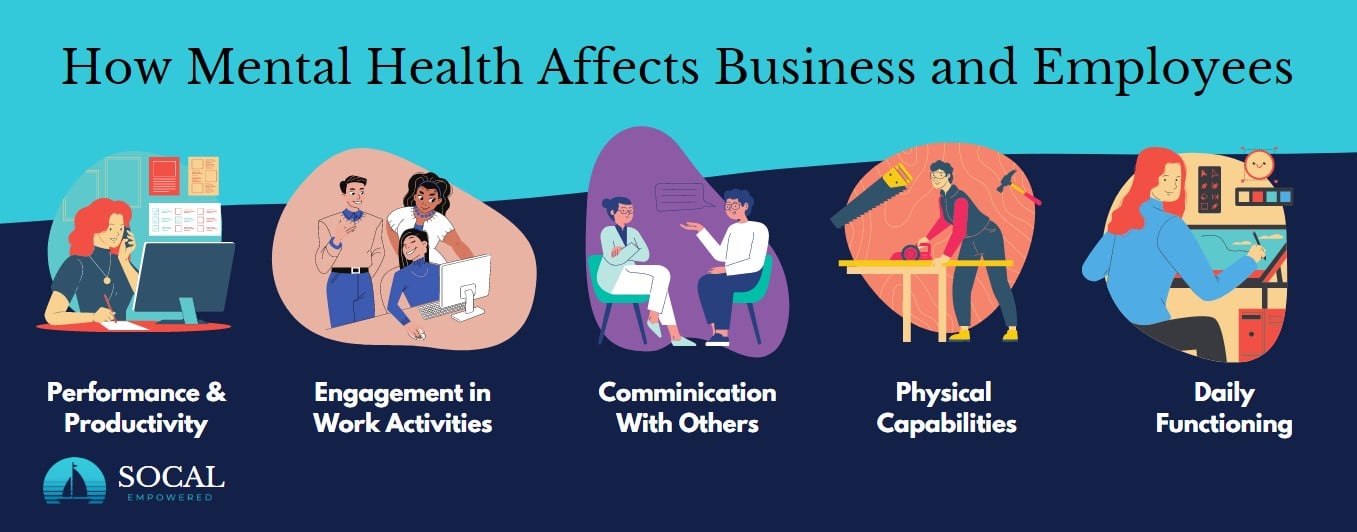The top priority for many employees today is mental health. A survey found that 59% of employees named stress and burnout as their top concern for workplace well-being. They don’t want to sacrifice their well-being for the financial goals of any company and don’t want to work somewhere where mental health is not prioritized.
Employers cannot ignore this. As the demand increases for workplaces where mental health is the focus, those in charge must take notice and take action. But this action has to be more than offering mental health “perks” to prospective employees.
The majority of employees have experienced work-related burnout, a state of chronic stress that can take a huge toll on their mental health—with 40 percent experiencing burnout during the pandemic. If you want your team to thrive moving forward, supporting mental health in the workplace is a must. But why, exactly, is mental health at work so important—and how can you create a work culture that supports your employees’ mental and emotional well-being?
- Employees are taking their mental health more seriously... The pandemic has shifted the way many people think about mental health—and today, employees are taking their own mental health concerns much more seriously.
- …and expect their employers to do the same. Not only are employees taking their mental health more seriously—they also expect their employers to do the same. According to the Aetna survey, 65 percent of employees reported they would only return to the office if their employer changed their policies around workplace well-being (for example, by rolling out more wellness initiatives).
- Absenteeism. When employees struggle with mental illness or mental health issues—and don’t get the support they need—it can be a major cost for businesses, particularly when it comes to absenteeism.

- Work-related stress. Stress—which can be extremely detrimental, both to the individual and the organization. When employees are chronically stressed, it can lead to burnout—which drives a host of negative symptoms for the employee (like physical and mental exhaustion and decreased productivity and focus) and the company (like issues with retention and turnover).
- Mental health doesn’t just affect the mind. Employees who are actively dealing with mental health struggles especially can’t just leave them at home. While mental illness primarily originates in the mind, its effects can go much further than this and reach into every aspect of one’s life, including your workplace. What this means is that when issues of mental health are pushed aside and ignored, an employee’s attendance and productivity can suffer.
So as an employer, how can you support your team’s mental health—and create a better, more productive workplace in the process
1. Open up about mental health issues. To start, you can make your prioritization of mental health a part of company culture by making it a part of company conversations. This includes conversations outside of the human resources office. Mental health remains stigmatized throughout society to the point where many people with mental health challenges still struggle to talk about their concerns.
2. Invest in the mental health of employees. Of course, it will never be enough to talk it out if you aren’t backing up your words with policies and programs. You can really show your employees that mental health is a priority by investing resources toward truly helpful mental health benefits. As a leader, you can ensure your workplace is not a harmful influence on employee mental health, but a place they can actually seek support.
3. Build programs and provide resources that benefit all. At the heart of all of this is prioritizing people over productivity and, really, anything else. The ideal mental health programs and resources don’t just make for a nice-sounding incentive for new hires; they offer tangible benefits to the organization as a whole by benefiting each person who makes up the company.

4. Offer mental health days off. Set up workshops that break down stigma and provide education on mental health topics. Make sure health benefits and insurance is inclusive of mental health so that getting the care they need doesn’t present unnecessary obstacles for your employees. Do these things purely because mental health really does matter.
5. Notice When Employees Are Struggling: Even if you speak openly about mental health at work, some employees won’t speak up when they’re struggling. So, as a leader, it’s your job to notice when your employees are stressed, overwhelmed, or struggling with more serious mental health disorders—and encourage them to take care of themselves. For example, let’s say you have an employee who has been working overtime for weeks to finish a project—and you notice they seem overwhelmed, upset, and anxious. Instead of waiting for them to come to you and say they need a break, recognize their hard work—and encourage them to take a mental health day.
The point is, your employees are responsible for their mental health—but as an employer, you’re also responsible for noticing when they’re struggling and encouraging them to take the time and space they need to take care of themselves. Call/WhatsApp Ms Seema Agarwal: +91 98205 76682

